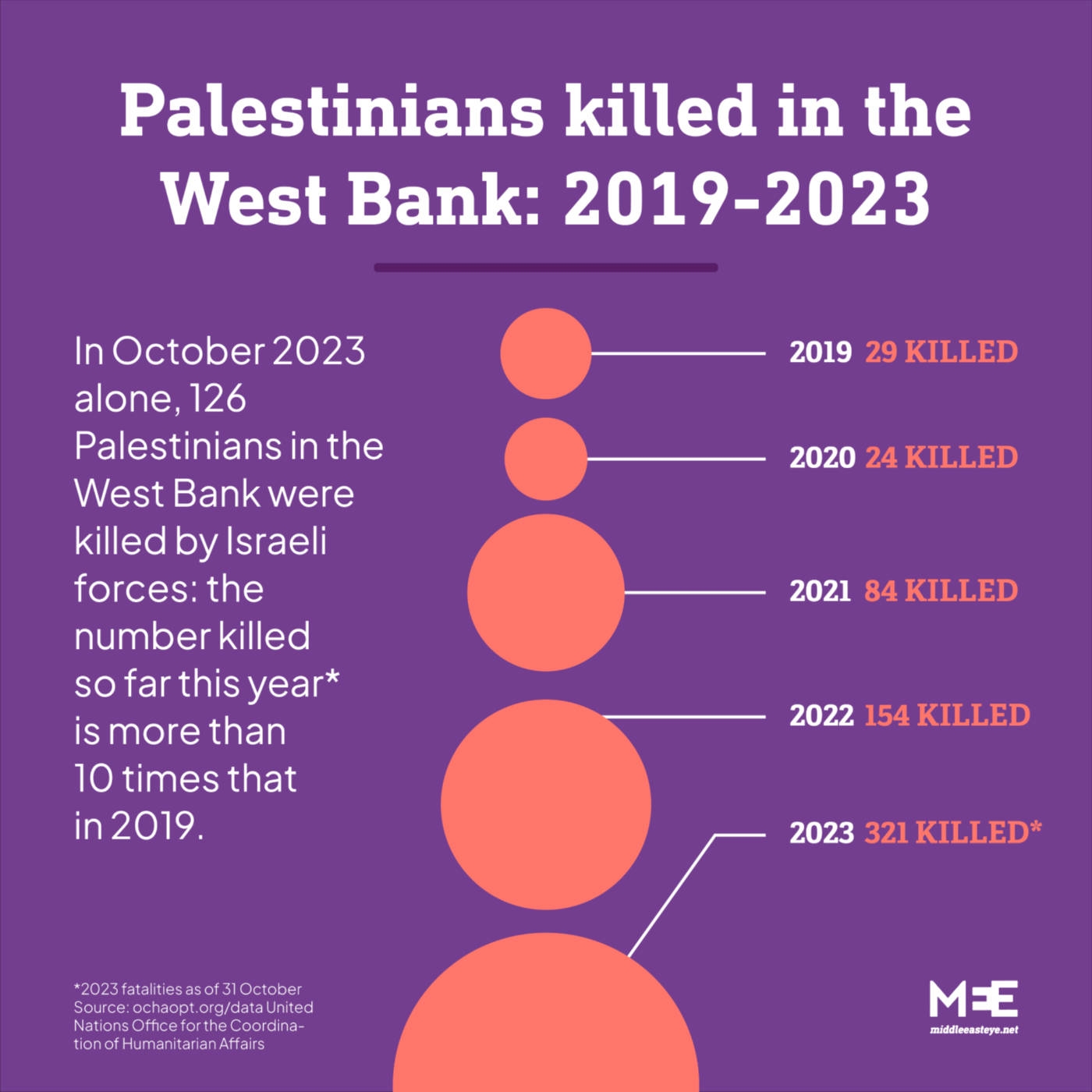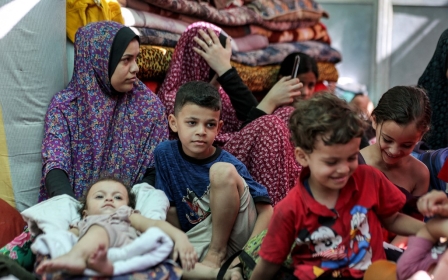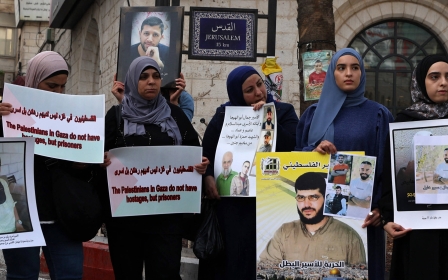Israel-Palestine war: 11 Palestinians killed in large Israeli raid on Jenin
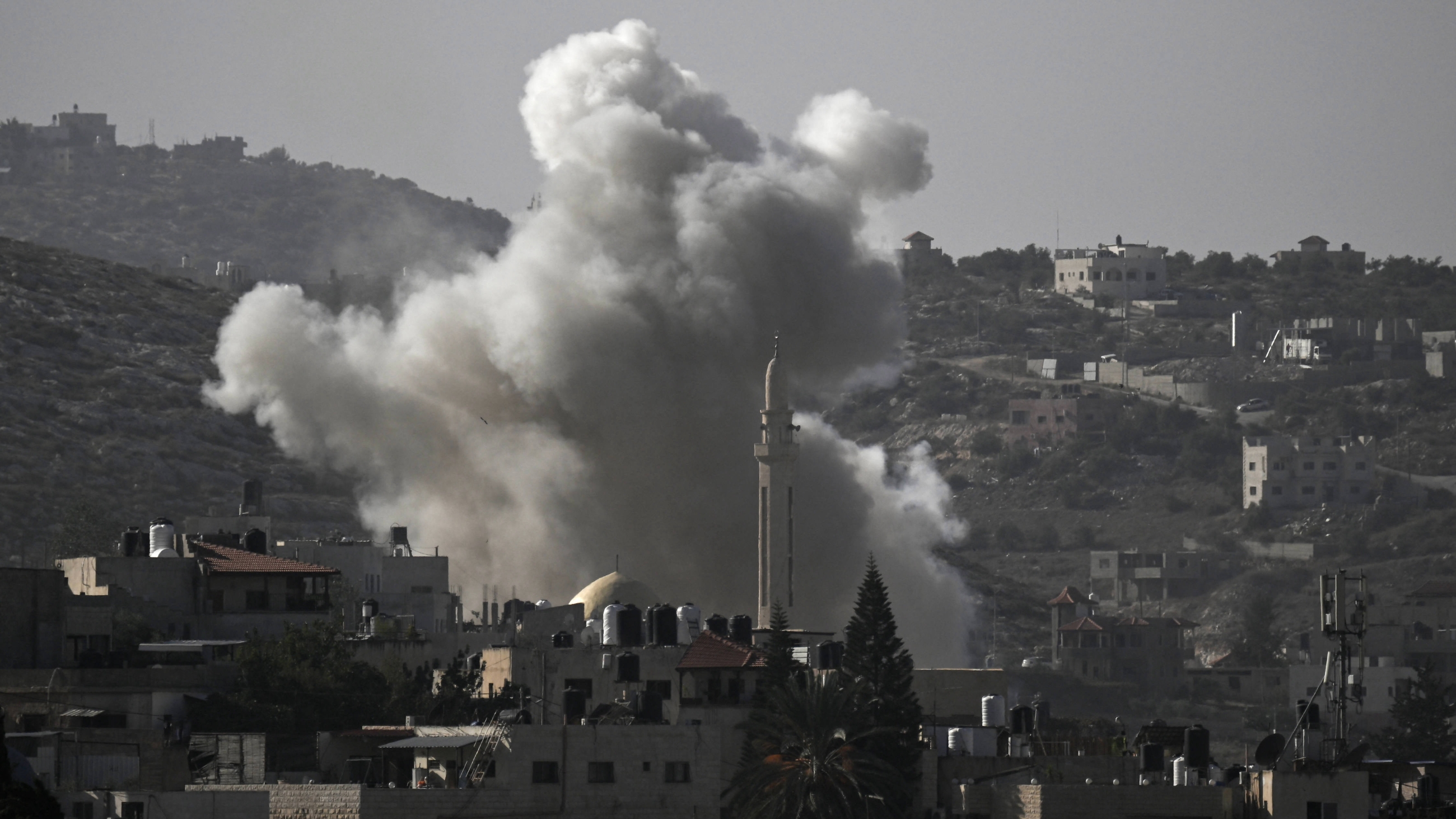
At least 11 Palestinians were killed by Israeli forces in a sweeping military raid and drone strikes on Jenin city and refugee camp on Thursday.
The Palestinian health ministry said more than 20 people were wounded in the military operation in the city, which is ongoing.
Elsewhere in the West Bank, three people, including a 15-year-old boy, were killed in raids in Bethlehem, Hebron and Ramallah.
Journalist Shatha Hanaysha told Middle East Eye from Jenin that the storming of the camp began at 10.30am, when an Israeli army force raided a house where Palestinian fighters were holed up.
Violent armed confrontations followed, coinciding with the widespread entry of Israeli military reinforcements from several fronts into the city of Jenin.
New MEE newsletter: Jerusalem Dispatch
Sign up to get the latest insights and analysis on Israel-Palestine, alongside Turkey Unpacked and other MEE newsletters
“The Israeli army completely closed the surroundings of the Jenin camp and fired at anyone who moved,” Hanaysha said. “It even opened fire on a group of citizens in the courtyard of the Jenin government hospital and at the emergency entrance.”
She added that several fighters were killed in a drone strike on a military cell in the middle of the camp, even as Israeli soldiers were arresting citizens at random.
Mahmoud al-Saadi, director of the Palestinian Red Crescent in Jenin, told MEE that Israeli soldiers surrounded Jenin Governmental Hospital and initially prevented ambulances from moving.
“While our crews were trying to transport the casualties from the camp, the Israeli soldiers opened fire on them, wounding paramedic Sabreen Al-Obaidi with live bullets in the back,” he said.
Blocked by Israeli soldiers, few paramedics have been able to reach the wounded.
Follow Middle East Eye's live coverage for the latest on the Israel-Palestine war
“The soldiers are still surrounding the hospital, preventing ambulance crews from moving, and searching our vehicles to prevent them from reaching the wounded,” Saadi added.
All of the casualties had gunshot wounds in their upper body, he said.
Meanwhile, for more than six hours, thousands of school and kindergarten students in Jenin were unable to leave their schools due to the tightened Israeli siege that coincided with the attack on the Jenin camp.
According to eyewitnesses, more than 3,000 children were trapped in five schools with their teachers without being able to go home during that time, which had created a state of extreme panic among them.
It wasn't until 6pm that medical teams were finally able to evacuate the students to a public hall inside Jenin in preparation for their return to their homes.
'The camp is under siege'
At least 176 people have been killed in the West Bank by Israeli forces and settlers since 7 October, when Hamas led an unprecedented attack on southern Israeli towns, killing around 1,400 Israelis.
The Israeli military has responded with a punishing bombing campaign on the Gaza Strip that has killed more than 10,800 people, mostly women and children.
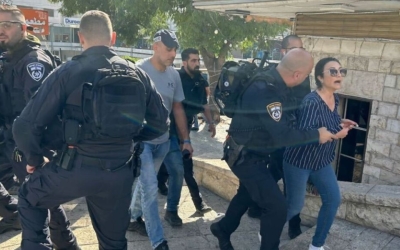
Simultaneously, Israeli forces have also carried out widescale raids and mass arrests accross the West Bank, with a focus on Jenin.
Political analyst and activist Sari Samour told MEE that the Israeli army has been storming the city and the camp for weeks, sweeping the streets and deliberately destroying the infrastructure.
Surprisingly, Samour said, the Israeli army stormed the city on Thursday just hours after withdrawing at dawn, following a raid a day earlier. The second time around, it came reinforced with large numbers of drones and military vehicles.
“The goal, it seems, is a major military operation to put an end to the phenomenon of armed action in the Jenin camp, taking advantage of the local and international media’s preoccupation with the Israeli aggression on Gaza,” he said.
“The camp is actually under siege and everything in it is targeted.”
Middle East Eye delivers independent and unrivalled coverage and analysis of the Middle East, North Africa and beyond. To learn more about republishing this content and the associated fees, please fill out this form. More about MEE can be found here.


